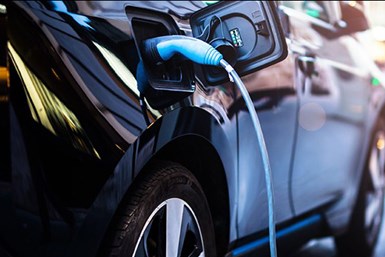Want to Pay Less for Maintenance and Repairs? Drive an EV
Electrified models currently are 50% less costly to own; even greater savings expected in the future
#hybrid
Buying an electric vehicle usually comes at a steep premium—even after federal and state rebates.

(Image: SAE)
In the past, proponents have argued that owners eventually recoup the difference via low recharging costs. That’s a harder sell at today’s fuel prices, even before COVID-19 bottomed out the market.
But there’s another way for EV buyers to get their money back: lower maintenance and repairs. While EV makers have long noted that fewer moving parts mean there’s less chance of something breaking, real world data is starting to prove out how such savings add up over time.
Half-Off Sale
On average, owners of electric vehicles and plug-in hybrids shell out only 50% as much on maintenance and repairs as do motorists with stand-alone piston engines, according to a new study by Consumer Reports.
The savings works out to about $4,600 over the life of a vehicle, which CR calculates at 200,000 miles for the purpose of the study. On a per mileage basis, CR says, the repair costs for the different powertrains are:
- $0.03/mile for a BEV
- $0.03/mile for a PHEV
- $0.06/mile for an ICE
Costs for mild- and conventional hybrid models weren’t listed.
"Electrics just don’t need as much maintenance as gas-powered cars…even though repairs won’t necessarily be less expensive, they are less frequently needed," notes Gabe Shenhar, associate director of CR's Auto Test Center.
The findings are based on data from thousands of respondents to CR’s last two annual reliability studies. The magazine plans to release a more comprehensive white paper comparing the costs of electrified and ICE-powered vehicles later this year.
Keeping It Simple
CR attributes the lower costs in part to less routine maintenance needed to keep an EV running.
“Oil changes and engine tune-ups we all know from gas cars are rendered obsolete by the EV’s relative simplicity,” Shenhar says.
There also is less wear on brake pads, thanks to an EV’s regenerative braking system. The latter uses resistance from an EV’s electric motors to help slow the vehicle.
Another potential savings spot is an EV’s cooling system. Although such systems still require traditional antifreeze, CR notes that there is no danger of contamination by engine oil or combustion byproducts, which reduces the need for changing or likelihood of breaking down.
Among the traditional maintenance/repairs EV owners still need to worry about are:
- Ball joints
- Cabin air filters
- Steering tie rods
- Suspension components
- Tires
An EV’s high-voltage electric system also could be a big-ticket item. Citing data from RepairPal, CR says that a battery pack costs about $5,500 to replace (about the same as an engine in a midsize ICE car), and new electric motors range from $6,000 to $9,000. But, the magazine notes, both systems typically last the life of an EV.
More Savings Coming?
Most of the EVs in the 100,000-mile-plus range in the CR study are early versions of the Tesla Model S and Nissan Leaf.
There have been steady improvements made over the years as next-generation models were introduced. And even more are expected in the future.
“Automakers have learned from their earlier models, so current-generation EVs may be more reliable than many of the vehicles shown in the results,” Shenhar says.
What About the Environment?
CR also points out that EVs produce an average of 60% less greenhouse emissions than conventionally powered cars.
It’s all good.
RELATED CONTENT
-
On Electric Pickups, Flying Taxis, and Auto Industry Transformation
Ford goes for vertical integration, DENSO and Honeywell take to the skies, how suppliers feel about their customers, how vehicle customers feel about shopping, and insights from a software exec
-
Mustang Changes for 2018
On Tuesday Ford unveiled—using the social media channels of actor Dwayne Johnson (this has got to unnerve some of the auto buff book editors)—the 2018 Mustang, which has undergone some modifications: under the hood (the 3.7-liter V6 is giving way to a 2.3-liter EcoBoost four, and a 10-speed automatic is available), on the dash (a 12-inch, all-digital LCD screen is available for the dashboard), at the tires (12 wheel choices), on the chassis (MagneRide damper technology is being offered with the Mustang Performance Package), and on the exterior (three new paint colors). And while on the subject of the exterior, there are some notable changes—a lower, remodeled hood, repositioned hood vents, new upper and lower front grilles, LED front lights, revised LED taillamps, new rear bumper and fascia.
-
When Automated Production Turning is the Low-Cost Option
For the right parts, or families of parts, an automated CNC turning cell is simply the least expensive way to produce high-quality parts. Here’s why.








